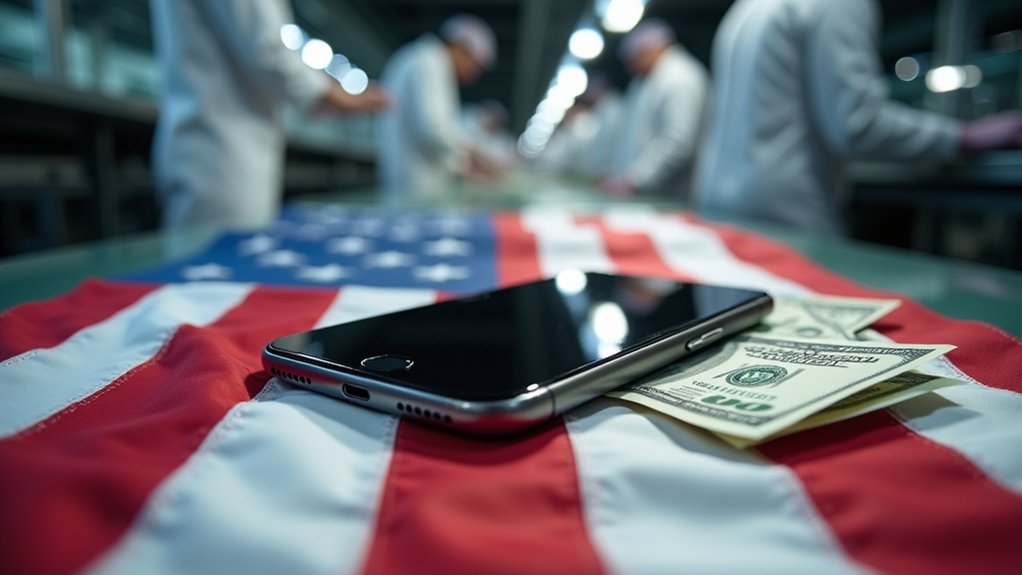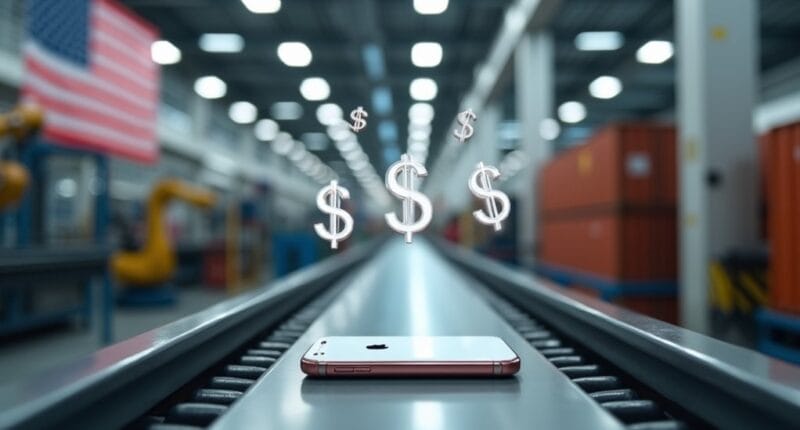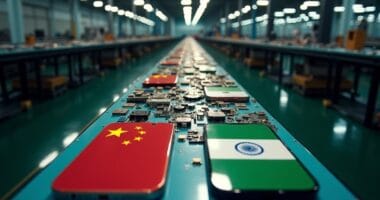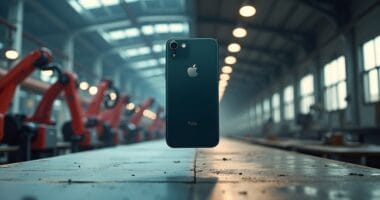Former President Trump is demanding Apple move iPhone production to America, threatening a 25% tariff if they refuse. But there’s a massive catch – experts say U.S.-built iPhones would cost consumers around $3,500, more than triple current prices. The astronomical jump stems from higher wages, strict regulations, and missing infrastructure. While Apple has expanded some production to India and Vietnam, creating a U.S. manufacturing base would require years and billions in investment. The full story behind these numbers gets even messier.

Former President Donald Trump is taking aim at Apple with his latest demand – build iPhones in America, or else. Through a Truth Social post, Trump threatened to slap a hefty 25% tariff on iPhones unless Apple starts manufacturing them domestically. His message to CEO Tim Cook was crystal clear: bring those jobs back home.
But here’s the kicker – experts say U.S.-built iPhones would cost consumers a fortune. We’re talking about potential price tags reaching $3,500, more than triple what Americans currently pay. Turns out, making sophisticated smartphones in the U.S. isn’t exactly a bargain, thanks to higher wages, stricter regulations, and the massive infrastructure investment required.
Apple’s been churning out iPhones in China for over 15 years, recently expanding production to India and Vietnam. About half of U.S.-sold iPhones now come from India. The company’s investing $500 billion in America over four years, but that money isn’t going toward iPhone assembly plants. The relationship between Apple and Trump has become increasingly strained over manufacturing locations.
The reality? Moving iPhone production to the U.S. would be a logistical nightmare. America lacks the specialized supplier networks and scale that Asia has built up over decades. Sure, some components like Corning glass are already made stateside, but most parts come from a complex global supply chain that took years to perfect.
Trump’s frustration stems partly from Apple’s recent expansion in India rather than the U.S. His proposed tariff would hit all imported iPhones, regardless of their origin country. The threat has already caused Apple shares to drop 2%. It’s part of his broader strategy targeting tech supply chains and outsourcing.
The outcome? If Trump’s demands become policy, analysts predict iPhones could lose their position as a best-in-class consumer product. Building the infrastructure and training the workforce needed for domestic production would take years.
And let’s face it – most Americans aren’t exactly thrilled about the prospect of paying car prices for their next smartphone.





